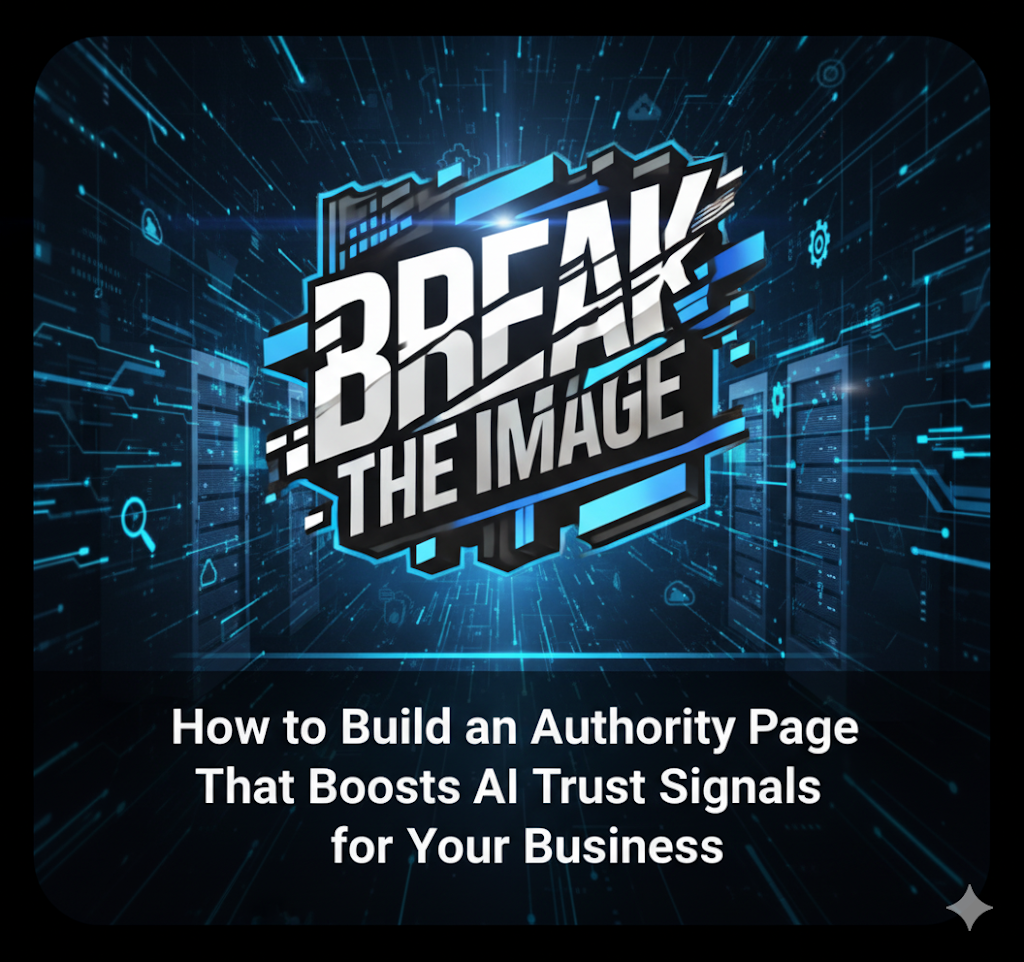Why Authority Pages Matter in 2025
Search engines and AI assistants are no longer just crawling websites — they’re making decisions about which businesses to recommend based on trust signals. If your brand doesn’t clearly showcase credibility, expertise, and authority, you risk being left out of the conversation when AI platforms deliver answers to your potential customers.
An Authority Page solves this problem. It acts as a centralized hub where all of your awards, recognitions, press mentions, certifications, and testimonials live. Think of it as your digital resume for both people and AI.
What is an Authority Page?
An Authority Page is a dedicated page on your website that demonstrates why your business can be trusted. It typically includes:
- Awards and recognitions (with proof)
- Media features and press mentions
- Certifications and memberships
- Community involvement and speaking engagements
- Case studies, testimonials, and major projects
By creating one central place for this information, you make it easier for customers, search engines, and AI tools to understand your credibility.
Why Authority Pages are Essential for AI Trust Signals
AI-driven search tools rely on structured, verifiable information to recommend businesses. An Authority Page provides:
- Centralized proof of credibility – instead of scattered mentions across your site.
- E-E-A-T alignment – Experience, Expertise, Authority, and Trustworthiness are baked into Google’s guidelines, and Authority Pages hit all four.
- Structured data signals – With proper schema markup, AI can easily parse awards, reviews, and organizational details.
Without one, your business risks being overlooked when AI pulls data to answer local or industry-specific queries.
Key Elements Every Authority Page Should Include
- Awards & Recognitions
- List official awards with dates and sources.
- Example: “Named Harford’s Best Realtor 2022 by The Baltimore Sun” (link to article).
- Press Mentions & Publications
- Embed media logos and link directly to articles, interviews, or features.
- Certifications & Memberships
- Industry accreditations, chambers of commerce, Better Business Bureau ratings, or trade group memberships.
- Speaking & Community Involvement
- Showcase events, conferences, charity work, or local initiatives.
- Testimonials & Case Studies
- Include client reviews and success stories (with permission).
- Schema Markup
- Add structured data for awards, reviews, and organization details to help AI interpret the page.
Step-by-Step Guide to Creating Your Authority Page
- Gather Your Proof → Collect all awards, reviews, press links, and logos.
- Design the Page → Use visuals like certificates, event photos, or publication logos to build credibility.
- Add Internal Links → Link to your Authority Page from your About page, footer, and service pages.
- Implement Schema Markup → Use JSON-LD for LocalBusiness, Review, Award, and Person (if including expert bios).
- Keep It Updated → Refresh the page quarterly with new awards, mentions, or testimonials.
Final Thoughts
An Authority Page is no longer optional — it’s essential if you want AI and search engines to view your business as trustworthy and recommendable.
By consolidating your credibility signals, adding proper schema, and keeping it updated, you create a lasting digital asset that improves both your human and AI visibility.
👉 Need help building your Authority Page? Break the Image specializes in designing trust-driven websites that generate leads and build long-term credibility. Contact us today to get started.

